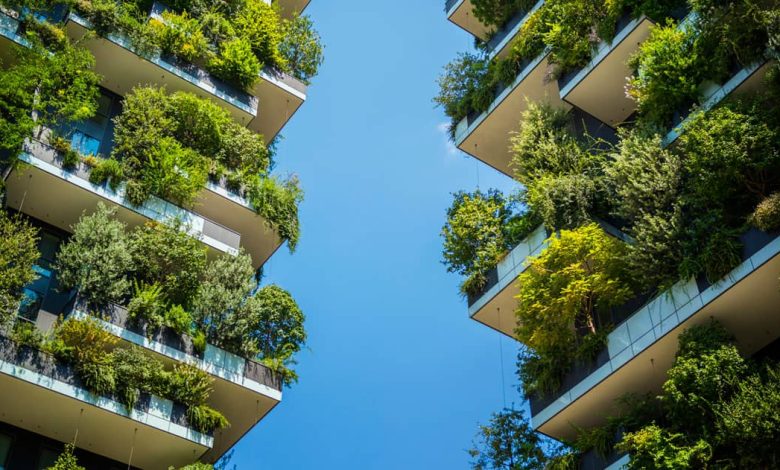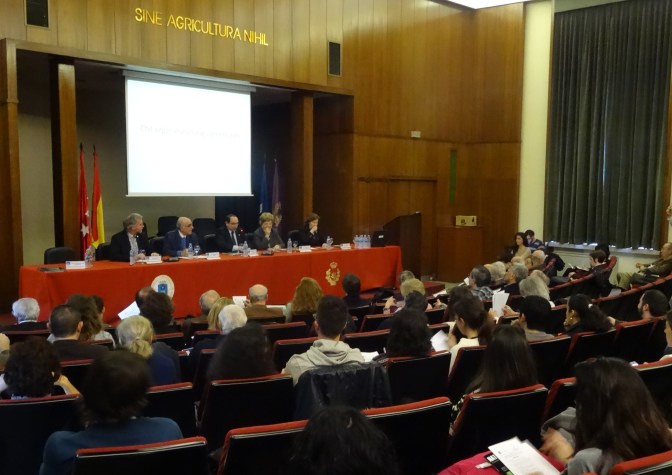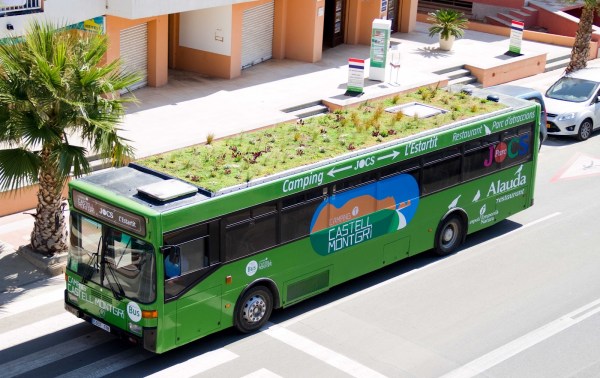Green cities in the world – Nature and Urban Agriculture in Madrid

On Thursday, April 3, a very interesting Conference, «Green Cities in the World», took place at the Higher Technical School of Agricultural Engineers in Madrid, especially for lovers of agriculture, nature and for those of us who dream of a city more green and less gray.
I was lucky enough to attend this Conference, organized by PRONATUR (Spanish Society for the Promotion of Urban and Rural Nature) and by the Fundación Foro Agrario, and the truth is that it more than met my expectations, especially due to the diversity of professionals who participated in the meeting and all the projects that they made known.
As you can see in the program (if you click on the image you can see it better) the cast of personalities could not be more diverse: agronomists, architects, geographers, naturalists, environmental educators, journalists, public officials… All of them committed to the same cause: to make cities more habitable spaces thanks to Urban Nature and Agriculture.
«Green cities in the world»
This is the title of the book presented at the Conference on Green Cities by its authors: Julián Briz, Manfred Köhler and Isabel de Felipe.
We had the privilege of having at the meeting Manfred Köhler, the president of the international non-profit organization World Green Infrastructure Network -WGIN- (World Green Infrastructure Network), who was appointed by Julian Briz, president of PRONATUR, Partner of Honor of said institution.
The book is written in English and includes, in 360 pages and 16 chapters, the economic, social, political, environmental and architectural aspects of the integration of nature in cities, that is, Urban Nature; describing the important role of green infrastructures in the evolution of cities and on the way for them to become healthier environments.
Its edition has been possible thanks to the collaboration between WGIN and PRONATUR, and the intervention of a multidisciplinary team of professionals and experts from all over the world who have participated in the different chapters of the publication.
In addition to the merely theoretical aspects, the book collects suggestive and successful experiences of Urban Nature in twenty-five countries, including Australia, Belgium, Germany, China, Canada, USA, Colombia… illustrating them with a multitude of photographs that are worth seeing.
I leave you here a video-presentation of the professors Julián Briz and Isabel de Felipe, two of the authors:
The work has been published by the Editorial Agrícola Española and you can buy it in paper or digital edition for €40 or €25 respectively (a very affordable price considering the quality of the publication, its scope and the level of knowledge of the authors).
The Conference Green cities in the world

From left to right: Mr. Manfred Köhler, Mr. Julián Briz, Mr. Miguel Ángel Garcimartín (Director of the ETSIA), Ms. Mary Cruz Díaz (Dean of the Association of Agricultural Engineers) and Ms. Isabel de Felipe
It is very difficult to summarize in a few paragraphs everything that I took home from the group of exhibitions of this day… Numerous issues related to urban agriculture and the greening of cities were touched on: its objectives, benefits, utilities… and also various proposals or projects already underway to achieve the main objective of these activities: to improve environmental conditions and the sustainability of cities.
Teachers and researchers, such as Professors Durán and Calatrava (Agricultural Engineers), Professor Zárate (Geographer) and Professor Olivieri (Architect), presented experiences and advances in the incorporation of green spaces in buildings and in cities (orchards and gardens)., greenhouses and other green areas on rooftops, plant envelopes for enclosures…) as well as the social, economic, technical or environmental aspects resulting from their research.
I was pleasantly surprised by Marc Grañén, who presented his business project: PHYTOKINETIC, a company dedicated to the implementation of mobile gardens. Yes, you read that right: mobile! Marc and his team install small gardens and orchards on the roofs of cars (buses, vans, refrigerated trucks…), turning these common urban elements into instruments to green cities. The vegetation of the roofs contributes to reducing CO2 emissions into the atmosphere, and the energy consumption of vehicles for air conditioning is lower, due to the damping of outside temperatures. In addition, they can be an effective marketing tool for companies.
 Isabel Báez, coordinator of « The Green Community», presented the keys and objectives of this meeting forum between companies, whose purpose is to promote collaboration between green entities (gardening, horticulture companies…) to take advantage of synergies and achieve more success in the dissemination of the green culture and its benefits.
Isabel Báez, coordinator of « The Green Community», presented the keys and objectives of this meeting forum between companies, whose purpose is to promote collaboration between green entities (gardening, horticulture companies…) to take advantage of synergies and achieve more success in the dissemination of the green culture and its benefits.
Of course, Urban Agriculture had a considerable role in the meeting, with experts of the stature of Nerea Morán (Architect and Researcher with extensive experience in this matter) and public representatives of the Community and the Madrid City Council (JA Hernández and Marisol Mena) who exposed the legal, social and educational aspects of this type of agriculture and disclosed projects already underway in our city such as the Retiro Information and Education Center.
Pablo Llobera and Alexei Cortina closed the day with two real and current experiences of what Urban Agriculture means for social welfare, health and the improvement of the agri-food model and life in cities.
Pablo introduced us to the Network of Urban Community Gardens of Madrid (ReHd Mad!), an initiative that since 2010 has brought together groups that carry out or want to carry out agricultural activities (public or community) in the city so that, together, they can more easily achieve objectives such as the expansion of knowledge in the field of urban horticulture, the regularization of this activity, its diffusion in society, etc.
Alexei is one of the three Agricultural Engineers who are part of the TRESBOLILLO association. Ecological gardens. With it, these young entrepreneurs have spent three years spreading their knowledge about organic farming wherever they go and promoting the autonomy and well-being of urbanites through this activity. They carry out projects and install urban gardens for individuals, schools, hospitals… They also teach courses and workshops and, for just over a year, have been selling organic seasonal fruits and vegetables produced in their garden in Soto del Grillo, on the banks of the Jarama.
In any case, in the coming weeks I will delve deeper into some of the issues and initiatives that were made known, and I will write an article so that you can get a little closer to what we want to become a reality for our cities: the creation of a healthier, more humane atmosphere, and, above all, greener.

![Photo of Types of Substrates: [Concept, Characteristics, Natural and Artificial]](https://www.complete-gardening.com/wp-content/uploads/2022/08/types-of-substrates-concept-characteristics-natural-and-artificial-390x220.jpg)


![Photo of Saffron Pests and Diseases: [Detection, Causes and Solutions]](https://www.complete-gardening.com/wp-content/uploads/2022/08/saffron-pests-and-diseases-detection-causes-and-solutions-390x220.jpg)